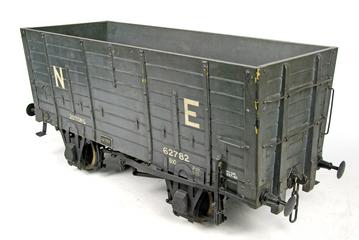
Model of a North Eastern Railway coal wagon, c 1915
1910-1920

1910-1920
2005-07-31
2005-07-31
1979
1973
1979
1847-04-25
1950-1959
1964
2004-04-28
2004-05-27
2004-03-23
2004-10-22
2005
2005
2004-05-28
2004-04-28
2004-05-07
2004-05-12
2004-03-31
2003
2004-04-06
2009
2004-02-25
2004-04-21
2004
2004
2004-02-24
2004
2004-07-14
2004-07-15
1960s
2006-12-09
2004-05-11
2004
2003
2004-04-22
2004
1829-04-09
1979
2004-06-08
2004-04-07
2004-02-09
2004-02-13
2002-2004
circa 2003